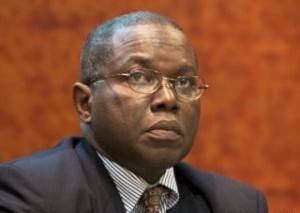The lack of long-term investment in the energy sector over the past decades is the cause of Ghana’s current energy crisis, Dr Nii Moi Thompson, an economic advisor to the President has said.
“The problems we are facing now are simply a reflection of neglect in investment over years,” Dr Thompson told Prince Minkah on the Ultimate Breakfast ShowTuesday January 3, 2015.
“We haven’t really had that long-term perspective in investing in infrastructure,” he said, adding: “It was in two forms: we are not making new investments and the existing investments that we had in the energy sector, we are also not maintaining.”
“So ultimately,” he noted, “the systems started collapsing on themselves as the population was growing, and not just growing, but also becoming more urbanised.”
Ghana’s energy crisis has worsened in recent years, especially in the past few months, with the authorities blaming the situation on low water level in the Akosombo, Bui and Kpong dams, and also the lack of gas to power the country’s thermal plants.
Power Minister Dr Kwabena Donkor also explained at a press briefing Monday January 2, 2015 that the country is shedding close to 440 megawatts of power during off-peak periods and 650 megawatts during the peak periods as against planned 250 and 350 Megawatts for those same periods.
Both the Minister and the President have also explained that a lot of investments in thermal energy production have been made, which are expected to impact positively on the country’s power supply in the future.
Dr Thompson said: “We used to be largely rural, now we are largely urban. We are about 54, 55 percent urban now, in the next 15 years, we are going to be 60 percent urban; these are all things we never planned for, we are now beginning to do that, therefore the virtues of long-term planning.”
“We just recently made a number of investments in the energy sector running into billions of US Dollars. If we had made these investments just 10 or 15 years ago, we wouldn’t be in this mess,” he told Prince Minkah.
General News of Tuesday, 3 February 2015
Source: starrfmonline.com

















